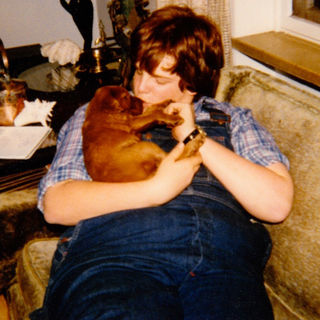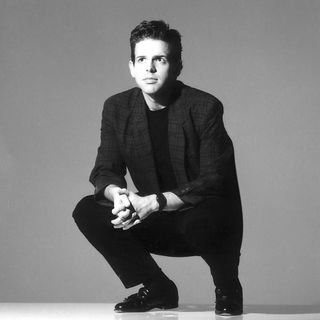Diet
What’s the Secret to Successful Dieting?
The answer might be to drop the D-word from our vocabularies altogether.
Posted August 15, 2020 Reviewed by Ekua Hagan

As someone who was overweight for most of my life, weighed over 450 pounds by the time I graduated from college, and then finally took off the weight sensibly without surgery or prescription medicine (and has kept the excess weight at bay for almost two decades), I’m often asked: “What’s the secret to successful dieting?” I often want to reply, “Don’t.” (Diet, that is.)
While this response might seem facetious to some, I assure you it’s not. It’s communicated with compassion and understanding.
I started to gain excess weight during the first grade. And my parents, thinking they were making smart decisions on my behalf, immediately put me on a strict diet, which taught me the rules of what and what not to eat. Naturally, I was more drawn to the “forbidden fruit” (the richer, more caloric foods) than I was to the iceberg lettuce and cottage cheese. So my parents next started locking up crackers, chips, sweets, and any other foods they deemed not diet-worthy. Although still at a young age, I quickly learned the concept of being “on” and “off” of a diet.
For anyone reading this with a furrowed brow, I will quickly point out I do not demonize my parents for doing this. Again, they were making the best decisions they knew to make. My father was in the Air Force, so his whole family being perceived as trim and “in shape” was very important to him (and, he believed, to his job).
But mentally armed with knowing what it meant to be on a diet, I knew exactly how to go off of said diet. I eventually began stealing money out of my dad’s wallet and used the cash to buy sweets and treats that I would hide in my bedroom closet. My “secret stash,” as it were. By the time I was a teenager (still being put on various diets—some even completely liquid-based), I was buying “contraband” food while my friends were trying to get their hands on “contraband” beer.

You can probably surmise that as my constant dieting efforts continued, so did the excess weight gain. Because we were stationed on an airbase in Germany, I was forced to shop for clothes from the Sears Big & Tall catalog (nothing like forcing yourself into a pair of large-sized Toughskins jeans to remind you of even more ways you didn’t fit in at high school).
But not even that kind of self-perceived shame kept me from going off of whatever diet I happened to be on. And certainly, there were times I stayed on the diets. But that was usually just the first day of them—after which all bets were off.
I continued to try every kind of diet known to man as I gained more and more weight. Sometimes I’d actually lose weight on the diets. But I’d eventually regain the weight I lost, along with some extra “bonus weight,” when I finally went off of the diet I’d been most recently “successful” on.
On. Off. On. Off. On. Off. All with more and more weight gain. And what was the common denominator? The diets themselves.

It wasn’t until I finally dropped the diet mentality that I began to make some real progress toward getting healthy. Healthy being the keyword.
Suddenly, I wasn’t as focused on getting thin (and getting out of those damned Toughskins jeans) as I was on feeling good. When weighing as much as I did, I would get breathless just talking on the phone. I would become winded walking up a single flight of stairs. I had even broken a movie theater seat that buckled under my weight (while on a date no less).
When I focused more on feeling good and the benefits that working my way to a healthier weight would bring me, I realized the “diet” wasn’t as necessary as it had been originally presented.
This doesn’t mean I didn’t do everything I could to learn about nutrition. But I also dedicated myself to embrace the concept of moderation. As I learned to enjoy food in a way that wasn’t like it was the last time I would ever have it, I didn’t have to overeat extreme amounts. I could have one scoop of ice cream because I knew there would be more reasonable amounts of ice cream in my future. The concept is simple, I know. But sometimes it’s the simplest changes that lead to the biggest triumphs.
I did a lot of work on my mental self as well—realizing that after many years of child abuse (separate of the extreme diets I had been put on), I had as much mental weight to get rid of as I did physical weight. But this was all do-able. And it began with reminding myself of my true goals: feeling good, being healthy, and loving myself (no matter what brand or size of jeans I was wearing)—all while being able to enjoy the occasional rich food in moderation.
Don't get me wrong. A reasonable (and nutritious) food plan is something that can definitely help you learn portion sizes. But you might want to drop the word “diet” while incorporating the food plan. And the plan shouldn’t be as much about restriction as it is about delicious, healthy choices in quantities that satisfy your hunger while fueling your body.

Dieting can be a concept that doesn’t work for a lot of people. Otherwise those of us with “diet mentalities” wouldn’t have to keep starting and re-starting diets over and over again. For some who are trying to change their lives and better their health, it might be time to try dropping the D-word from their vocabulary as they commit to their overall goal of living a happier, healthier life.




